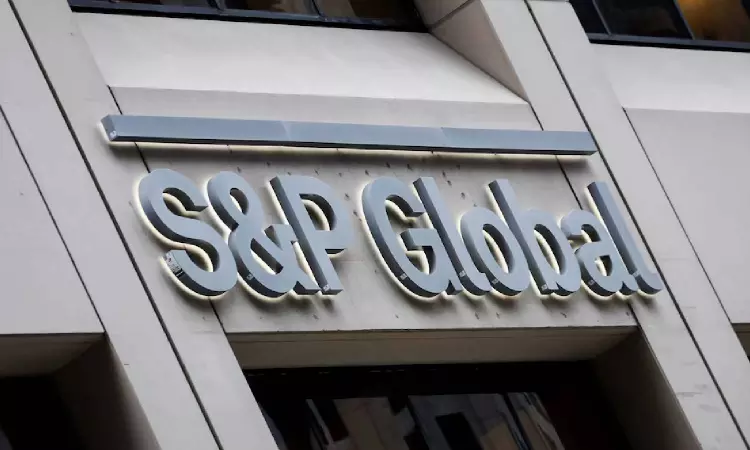Global credit outlook for 2024 worsens, new survey finds
Fifty-one percent of survey participants said they expect corporate defaults to pick up in North America, while 57% expect this to be the case in Europe, according to the IACPM.

The S&P Global logo is displayed on its offices in the financial district in New York City, U.S. (REUTERS)
NEW DELHI: Portfolio and asset managers at some of the largest financial institutions hold a negative outlook on global credit conditions, according to a survey by the International Association of Credit Portfolio Managers.
In a survey of managers at over 135 financial institutions in more than 30 countries published Thursday, the IACPM reported that more survey participants than previously expect corporate credit defaults to rise in the coming months.
Fifty-one percent of survey participants said they expect corporate defaults to pick up in North America, while 57% expect this to be the case in Europe, according to the IACPM.
Some of those surveyed said they are seeing increased stress among lower income U.S. consumers as well, albeit at a slower pace than corporates.
"Defaults have increased somewhat but, at the same time, consumers are nevertheless showing surprising resilience, perhaps because of continuing low unemployment or because they have affordable home mortgages with very low interest rates," the IACPM noted in a press release.
Despite the increased expectations for defaults in North America, just 25% of those surveyed said they expect the region to enter a recession this year.
But 37% of those survyed expect Europe to enter a recession this year, while 19% said they believe the region has already entered one, according to the survey.
Those surveyed said they expect overall credit spreads to widen. But for investment grade corporates in North America, the expectation is for tightening spreads this year.
"A number of our members believe spreads, after tightening considerably during the first three months of the year, are now where you would expect them to be given current economic and market cycles," said Som-lok Leung, the IACPM's executive director.



